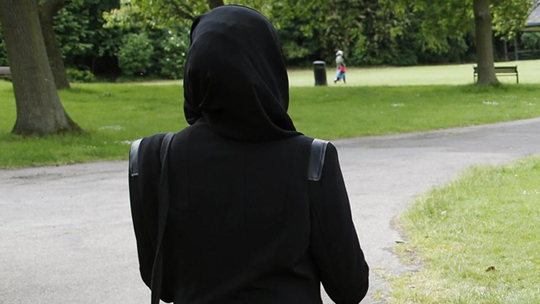Melbourne, Feb 13: A Hijab-clad Muslim woman and her friends in New Zealand were targets of foul-mouthed racist comments at a rest stop with a woman yelling expletives and throwing beer cans at them.

Mehpara Khan, 28, a communications consultant, and her four friends were returning to Auckland from a road trip when they stopped in Huntly to use the bathroom and were abused by a woman walking by.
Khan has posted a video on Twitter that shows another woman flinging cans of what appears to be alcohol at her and yelling expletive-laden abuse.
Who said islamophobia doesn't exist. This just happened in Huntley. I'm shaking. pic.twitter.com/yoVMNON1rA
— Mehpara Khan (@MehparaK) February 11, 2017
“All of a sudden this woman comes out of the bathroom and starts swearing at us and telling us that we don’t belong there and that we are Muslim b......, that need to F-off, basically,” Khan was quoted as saying by Nea Zealand Herald.
“She then threw a beer can at me and two at my two friends. I’m covered in beer - I feel disgusting,” Khan wrote.
“We weren’t doing anything, we didn’t actually even initially realise she was talking to us,” she said.
“Once she threw in the line of Muslim b-words that’s when we realised she was yelling at us,” she said.
“At this point I decided to start filming her.”
The 27-year-old woman who carried out the attack is shown in the recording ordering Khan and her friends to get back.
A police spokesman said they were “aware” of the video and a formal complaint had been laid.
“Police are assessing the information,” the spokesman said
Islamic Women’s Council’s spokeswoman Anjum Rahman said she was appalled, but not entirely surprised, by the abuse.
“A small number of New Zealanders behaved in that way. She would like to meet with the woman filmed swearing and hurling abuse to help change her attitude towards Muslims,” Rahman said.
However, Khan has received an outpouring of support after posting the video.
“Thanks everyone for your comments and support - this is so overwhelming. I’m still with the police - will try and respond once I’m done,” Khan tweeted.
“My phone is over run with positive messages right now. So good to know that we as Kiwis don’t accept this as our NZ,” she said.




Comments
You are talking about Muslims in Newzealand , what about Christians in Saudi, Pakistan etc etc? Why their freedom is stopped by their Govt. Answer it 1st then poke out at others.
media should find out exact reason for her act..
third rated people , shameless ... if there is no respect why go there ? why cannot u build a new world in islamic world . i see many from one particular community they are ready to do toilet cleaning job abroad ... why ? dont u have self respect ...islamaphobia is every where ... it is justiofied also , many burqa clas women hid suicide bombs and explode ...
Add new comment